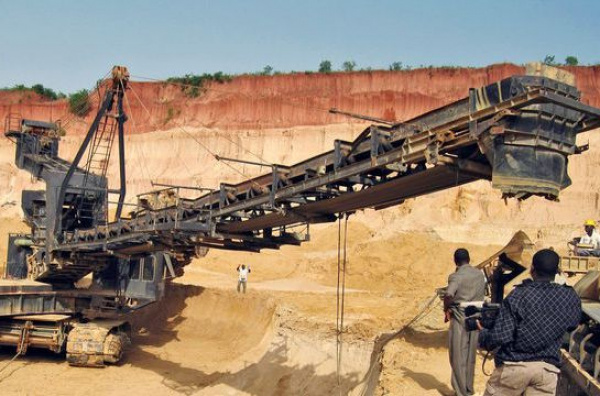Mining in Ghana is often painted in bold strokes of golden opportunity and untapped potential. But behind every successful concession, every gleaming ounce of refined gold, and every multinational footprint lies a quieter, often overlooked journey — the first steps of acquiring a mining license.
For many aspiring investors, whether local entrepreneurs or foreign companies, this process can feel like navigating a maze of paperwork, regulations, and government offices. Yet, it is also the most crucial stage, setting the foundation for a legally compliant and sustainable mining operation.
Step One: Defining Your Intentions
The journey begins with clarity. Are you applying for a small-scale mining license or a large-scale prospecting or mining lease? Ghana’s legal framework, anchored in the Minerals and Mining Act (2006, Act 703 as amended), distinguishes between artisanal operations and industrial-scale investments. The category you choose determines your eligibility, capital requirements, and obligations.
For instance, small-scale licenses are reserved for Ghanaians, while foreign investors often engage through partnerships or apply for prospecting and large-scale leases.
Step Two: Identifying the Land
Mining is as much about geology as it is about geography. Applicants must identify and apply for a specific parcel of land that is not already under license or reserved for other purposes. This requires submitting an application to the Minerals Commission, Ghana’s regulator of mineral resources.
In the ideal situation, the investor begins by searching for land with a strong prospect of gold deposits. Many local and foreign investors turn to the Ghana Geological Survey Authority, where they can access historical geological surveys highlighting areas known to contain gold. Others rely on the wisdom of communities, drawing on local knowledge of areas where artisanal miners have historically extracted gold. A third group takes a more pragmatic approach, visiting the Minerals Commission’s district offices to identify active concessions and then exploring adjacent areas as potential opportunities.
Here, the human side of the process often surfaces. Local chiefs, landowners, and community members are stakeholders in their own right. Their acceptance and cooperation can shape the smoothness of your application just as much as the paperwork.
Step Three: Submitting Your Application
With land identified, the next stage is to formally apply for the mining license through the Minerals Commission. This is often described as the most bureaucratic part of the process — and rightly so — but it is also the stage where Ghana insists that mining aligns with its broader priorities: accountability to the environment, responsibility to local communities, and national development.
At its core, the application requires familiar paperwork: completed forms, business registration documents, evidence of technical and financial capacity, and, in some cases, an environmental impact plan. But the process goes deeper. The law provides a clear checklist of general documents that must accompany an application once land has been identified:
- Site plan/coordinates: The site plan must conform to Ghana’s “block system” — 3 seconds by 3 seconds or 15 seconds by 15 seconds geometrical sections, depending on whether it is for small-scale or large-scale mining. It must also be endorsed by both a licensed surveyor and the Director of Survey (or their authorized regional representative), in accordance with Regulation 2 of the Minerals and Mining (Licensing) Regulations, 2012 (L.I. 2176).
- Official search report: This comes from the cartographic unit of the Minerals Commission to confirm that the land is free from existing claims.
- Prescribed fees: US$550 for Ghanaian applicants, US$750 for foreigners, and US$340 for sand winning permits.
- Gazette fee: GH¢1,000 for Reconnaissance, Prospecting, Mining, or Restricted Mining Leases above 25 acres, and GH¢600 for Small-Scale Mining or Restricted Mining Leases below 25 acres.
- Feasibility study (for Mining Lease applications): This study assesses whether the proposed project is technically, economically, legally, and operationally viable. In essence, it answers the question: Is this project truly feasible?
- Identity card (for Small-Scale Mining applicants): Ghana’s national ID card is required to prove eligibility.
Each of these requirements, while seemingly just a checklist, represents a broader principle. The site plan ties the operation to regulated geography, the feasibility study tests its sustainability, and the fees reinforce accountability. Together, they transform the application process from a mere formality into the gatekeeper of responsible mining in Ghana.
Step Four: Community and Environmental Considerations
One of the defining features of Ghana’s licensing process is the emphasis on environmental sustainability and community engagement. Before a license is granted, the Environmental Protection Agency (EPA) may conduct reviews, and applicants are often expected to engage affected communities.
This is where mining moves from being a business to becoming a social contract. Successful miners are those who view community consent not as a box to tick, but as a partnership to nurture.
Step Five: Review and Approval
Finally, the Minerals Commission evaluates the application, sometimes in consultation with the Ministry of Lands and Natural Resources. If approved, a license is issued — a gateway not just to mining rights, but to responsibilities enshrined in Ghanaian law.
Why These First Steps Matter
Too often, stories about mining focus on the riches at the end of the tunnel. Yet, the early stages — clarifying your intent, respecting the land, preparing your documentation, and engaging communities — determine whether your project will thrive or falter.
Acquiring a mining license in Ghana is not simply a transaction with the state; it is the start of a long-term relationship with people, land, and law. Get this part right, and you set the stage for not just profits, but legacy.
External References
- Minerals Commission of Ghana – Official website with licensing and regulatory information
- Minerals and Mining Act, 2006 (Act 703) – Ghana Legal Framework
https://resourcegovernance.org/sites/default/files/Minerals%20and%20Mining%20Act%20703%20Ghana.pdf
- Ghana Geological Survey Authority – Geological maps, surveys, and exploration data
- Environmental Protection Agency Ghana – Environmental permitting and compliance for mining projects
- Minerals and Mining (Licensing) Regulations, 2012 (L.I. 2176) – Key regulation for site plans, fees, and application process
https://www.brr.gov.gh/reg_details?id=NDM4
- Ministry of Lands and Natural Resources – Ghana – Mining policy and governance framework




